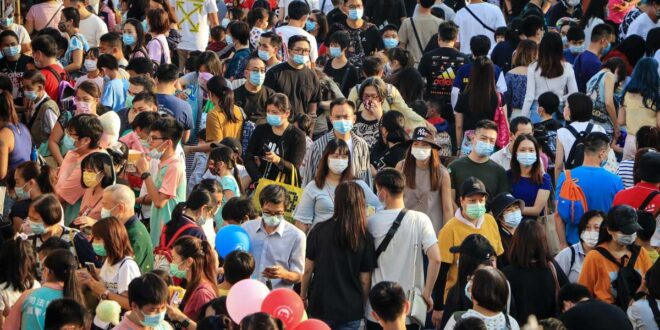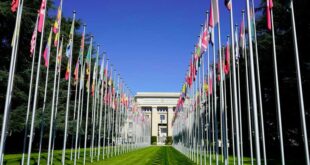Datu Yngson
Ever since the global spread of the COVID-19 virus, claims have been made of the pandemic causing a massive impact in global politics and international relations. In the pre-pandemic era, international relations were defined by increasing bipolarity, greater isolationism, greater trade protectionism and increasing nationalism. While the West led by the US was gradually adopting a protectionist attitude, the East led by China in particular, was looking towards increasing multilateral cooperation. Alongside this, international organizations were seeing their roles diminishing. Moreover, populist leaders and authoritarian governments were gradually gathering influence globally, in stark contrast to a decline in democracy and neo-liberalism. These trends could be seen most clearly in the US/China conflict that has dominated most international relations rhetoric of the 21st century.
Although China had been hit with the pandemic first, through extreme lockdown measures, quick responses, mass screenings, targeted monitoring and an effective socio-political response, the country quickly reversed course and had flattened its curve by March, depicting the resilience of the country. With a mere 87,000 cases as of December 2020 in a country of 1.4 billion people, China’s effective policies to deal with the pandemic can hardly be sidelined. Nevertheless, as the virus had been identified in China first, this triggered a massive backlash from the West, particularly the US, where President Trump blasted China for covering-up details about the virus. Rumors were spread by the White House itself about the virus originating from a Wuhan lab, and the virus was labeled the Wuhan Virus – a move discouraged by the WHO. This inflammatory language worsened relations between the two countries. Going even further, President Trump terminated US involvement in the World Health Organization, claiming it to be controlled by Chinese authorities.
With this move the influence of the world’s most important health organization was weakened, further showcasing the decline of the liberal international world order, due to a diminishing trust in international organizations. Thus, the pre-Covid trend of a lack of trust in international organizations, continued during the COVID-19 pandemic as well. With Trump advocating for closed borders with his “We need the wall more than ever” expressions on Twitter, and similar far-right leaders like France’s Le Pen ruing the “religion of borderless-ness” for the pandemic, the West’s protectionist, nationalistic ideas showed no signs of abating even during a global crisis.
In stark contrast, the East led by China continued on its path of greater cooperation and interdependence, through bilateral and multilateral engagements. With the US leaving a void in the global leadership spot for handling the pandemic, China stepped in and offered to assist other countries in handling the outbreaks in their respective countries. China’s foreign ministry’s spokesperson, Hua Chunying, even stated that they would like to share China’s good practice and experience.
Furthering its charm offensive, China started shipping out masks and ventilators to countries that were very badly hit by the pandemic, like Italy, Spain and Serbia. With the countries of the European Union shutting down their borders and hoarding domestic supplies, despite Italy’s pleas for help, Italy turned to China for aid in fighting the coronavirus pandemic. This “mask diplomacy” along with China’s Health Silk Road has served to strengthen global public health governance, as envisioned by China.
Undeniably, the pandemic’s effects in the short-term have been wide-reaching, especially in the social and technological domain. However, expecting global politics and international relations to undergo a transformational change in the long-term, solely due to the COVID-19 pandemic is relatively far-fetched, especially if current global trends are assessed.
The virus may or may not have taken its toll on international diplomacy in the traditional context, but it has certainly shaken many things if not stirred them completely.
 Geostrategic Media Political Commentary, Analysis, Security, Defense
Geostrategic Media Political Commentary, Analysis, Security, Defense





